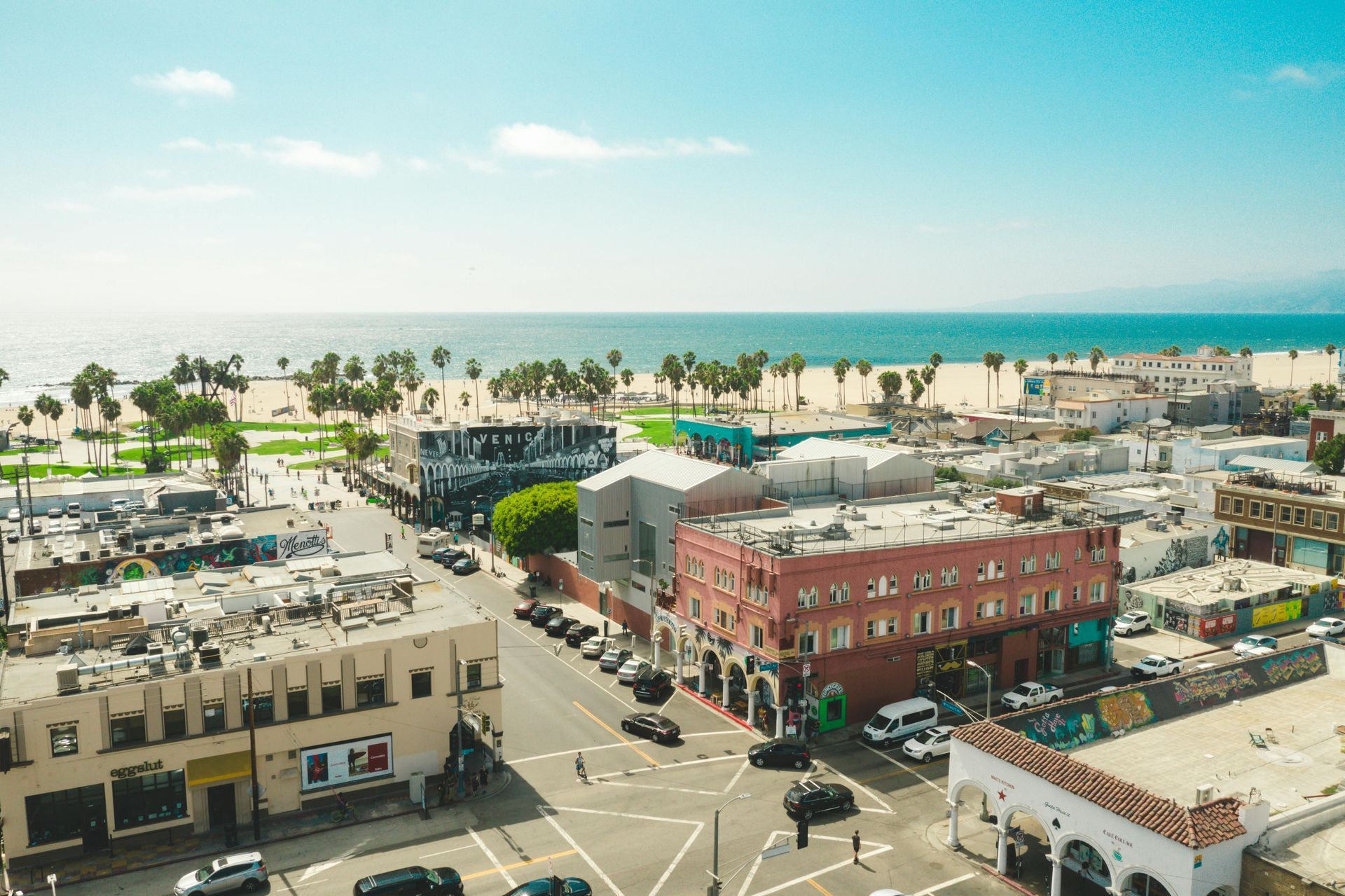Index
Contact Us
Phone
Location
Simi Valley, CA 93065
The Woodlands, TX 77382
Katy, TX 77494
As an industrial plumber, you play a crucial role in ensuring the smooth operation of various systems in factories, plants, and large commercial buildings. However, with the complexity of the job comes significant risks. That's where industrial plumber insurance comes into play. This article will delve into everything you need to know about industrial plumber insurance, including its importance, types of coverage, and how to choose the right policy for your business.
Understanding Industrial Plumber Insurance
Industrial plumber insurance is designed to protect plumbing professionals working in industrial settings from various risks associated with their trade. This type of insurance provides coverage for property damage, bodily injury, and other liabilities that may arise during the course of work. Understanding the nuances of this insurance can help you make informed decisions about your coverage needs. Additionally, it can also aid in navigating the complex regulatory landscape that often governs industrial plumbing operations, ensuring compliance with safety standards and legal requirements.
Why Do Industrial Plumbers Need Insurance?
Every profession carries inherent risks, and plumbing is no exception. Industrial plumbers often work with heavy machinery, hazardous materials, and complex systems that can lead to accidents. Without proper insurance, you could face significant financial burdens if something goes wrong. Insurance not only protects your business but also instills confidence in your clients, showcasing your professionalism and commitment to safety. Furthermore, having comprehensive insurance can enhance your reputation in the industry, as clients are more likely to engage with contractors who prioritize risk management and liability protection.
Key Risks Faced by Industrial Plumbers
Industrial plumbers encounter various risks daily, including:
- Accidental injuries to employees or third parties
- Property damage during installations or repairs
- Equipment malfunctions leading to costly downtime
Understanding these risks is crucial for selecting the right insurance coverage to mitigate potential losses. Additionally, industrial plumbers may also face risks related to environmental hazards, such as leaks or spills of toxic substances, which can lead to significant legal liabilities and cleanup costs. The nature of industrial plumbing often requires compliance with stringent environmental regulations, making it essential for plumbers to have coverage that includes environmental liability to address these specific concerns.
Moreover, the financial implications of not having adequate insurance can be severe. In the event of a lawsuit or a major incident, the costs associated with legal fees, settlements, and repairs can quickly escalate, potentially jeopardizing the future of your business. Therefore, investing in a robust industrial plumber insurance policy is not just a precaution; it is a strategic move that can safeguard your livelihood and ensure the sustainability of your operations in a competitive market.
Types of Coverage for Industrial Plumbers
When it comes to industrial plumber insurance, there are several types of coverage you should consider. Each type serves a different purpose and addresses specific risks associated with your work.
General Liability Insurance
General liability insurance is a fundamental type of coverage for any business, including industrial plumbing. This insurance protects you from claims related to bodily injury, property damage, and personal injury that may occur during your operations. For instance, if a client slips and falls on your job site, general liability insurance can help cover medical expenses and legal fees. Additionally, this coverage can also protect you against claims of negligence, which can arise if a client believes your work caused damage to their property or resulted in financial loss. Having this insurance not only safeguards your finances but also enhances your credibility, as clients often feel more secure knowing that you are adequately insured.
Workers' Compensation Insurance
If you have employees, workers' compensation insurance is essential. This coverage provides benefits to employees who suffer work-related injuries or illnesses. It can cover medical expenses, rehabilitation costs, and lost wages. In many states, workers' compensation is legally required, making it a critical component of your insurance portfolio. Beyond legal compliance, this insurance fosters a safer workplace culture, as it encourages employers to prioritize safety measures and training programs. By investing in workers' compensation, you not only protect your employees but also demonstrate your commitment to their well-being, which can improve morale and productivity on the job.
Commercial Auto Insurance
As an industrial plumber, you likely use vehicles to transport tools and equipment to job sites. Commercial auto insurance covers vehicles used for business purposes, protecting you from liabilities associated with accidents, theft, or damage. This coverage is vital for safeguarding your assets and ensuring your operations run smoothly. Furthermore, commercial auto insurance can also provide coverage for equipment that may be stored in your vehicles, offering peace of mind against potential losses. Given the unpredictable nature of road conditions and the high stakes of transporting heavy machinery, having this insurance is not just a precaution; it is a necessary investment in the continuity of your business operations.

In addition to the primary types of coverage mentioned, there are several other options that industrial plumbers may want to consider. These additional policies can provide further protection tailored to the unique risks of your business.
Professional Liability Insurance
Professional liability insurance, also known as errors and omissions insurance, protects you against claims of negligence or inadequate work. If a client alleges that your plumbing work caused a problem, this insurance can help cover legal fees and settlements. This coverage is particularly important for industrial plumbers who provide consulting or design services. In complex projects, where multiple stakeholders are involved, the risk of miscommunication or oversight increases, making this insurance a vital safeguard for your reputation and financial stability.
Equipment Insurance
Industrial plumbing often requires expensive tools and equipment. Equipment insurance covers the loss, theft, or damage of your tools, ensuring that you can replace them quickly without incurring significant out-of-pocket expenses. This coverage is crucial for maintaining your operational efficiency. Additionally, some policies may include coverage for rented or leased equipment, which is particularly beneficial for contractors who may not own all the tools they need for specialized tasks. This can help you avoid delays in project timelines and ensure that you can meet client expectations without interruption.
Pollution Liability Insurance
Given the nature of industrial plumbing, you may encounter hazardous materials and pollutants. Pollution liability insurance protects you from claims related to pollution caused by your work. This coverage is especially important if you work on projects involving hazardous waste or chemicals. Furthermore, as environmental regulations become increasingly stringent, having this insurance can not only protect your business from potential lawsuits but also enhance your credibility with clients who prioritize sustainability and compliance. Being able to demonstrate that you have taken steps to mitigate environmental risks can set you apart in a competitive market.
How to Choose the Right Insurance Policy
Selecting the right insurance policy for your industrial plumbing business can be a daunting task. However, by considering a few key factors, you can make an informed decision that best suits your needs.
Assess Your Risks
Start by evaluating the specific risks associated with your work. Consider the types of projects you undertake, the size of your crew, and the equipment you use. Understanding your unique risk profile will help you determine the types and amounts of coverage you need. For instance, if your projects often involve high-pressure systems or hazardous materials, you may require specialized coverage that addresses these specific risks. Additionally, think about the geographical areas you serve, as certain locations may have unique regulatory requirements or environmental hazards that could impact your insurance needs.
Compare Policies and Providers
Once you have a clear understanding of your insurance needs, it's time to shop around. Obtain quotes from multiple insurance providers and compare the coverage options, limits, and premiums. Don't hesitate to ask questions and seek clarification on any terms or conditions that may be unclear. It's also beneficial to read customer reviews and assess the reputation of each provider. Look for companies that have a track record of excellent customer service and prompt claims handling, as these factors can significantly affect your experience in the event of a claim.
Consult with an Insurance Agent
Working with an experienced insurance agent can simplify the process of choosing the right policy. An agent can help you navigate the complexities of industrial plumber insurance, recommend suitable coverage options, and ensure that you understand the fine print of your policy. Moreover, a knowledgeable agent can provide insights into industry trends and emerging risks, allowing you to stay ahead of potential challenges. They can also assist in tailoring your policy to include endorsements or additional coverage that may be beneficial, such as coverage for subcontractors or equipment breakdown insurance, ensuring that you are comprehensively protected.
The Cost of Industrial Plumber Insurance
The cost of industrial plumber insurance can vary significantly based on several factors. Understanding these factors can help you budget for your insurance needs and make informed decisions.
Factors Influencing Insurance Premiums
Several factors can influence the cost of your insurance premiums, including:
- Your business location
- The size of your business and the number of employees
- Your claims history
- The types of coverage you choose
By being aware of these factors, you can take steps to mitigate risks and potentially lower your insurance costs. For instance, maintaining a safe work environment, investing in employee training, and implementing regular maintenance schedules can significantly reduce the likelihood of accidents and claims. Additionally, some insurance providers offer discounts for businesses that adopt safety programs or achieve certain industry certifications, making it worthwhile to explore these options.
Average Costs
While the cost of industrial plumber insurance can vary widely, on average, small to medium-sized businesses can expect to pay anywhere from $1,000 to $3,000 annually for general liability insurance. Workers' compensation insurance costs can also vary, typically ranging from $0.75 to $2.00 per $100 of payroll. It's essential to obtain personalized quotes to get a more accurate picture of your potential costs. Furthermore, as your business grows or diversifies its services, your insurance needs may change, necessitating a review of your coverage to ensure it aligns with your current operations and risks.
Moreover, the type of projects you undertake can also impact your insurance premiums. For example, if your business specializes in high-risk industrial plumbing tasks, such as working with hazardous materials or in confined spaces, you may face higher premiums compared to those who primarily handle residential plumbing. Understanding the nuances of your specific niche can help you better anticipate costs and tailor your coverage accordingly. Engaging with an insurance broker who specializes in the plumbing industry can provide valuable insights and help you navigate the complexities of selecting the right policy for your needs.
Common Misconceptions About Industrial Plumber Insurance
There are several misconceptions surrounding industrial plumber insurance that can lead to misunderstandings about its importance and necessity. Let's address some of these common myths.
Myth: Insurance is Too Expensive
While insurance costs can add up, the potential financial burden of an accident or lawsuit far outweighs the cost of coverage. Investing in insurance is a proactive measure that can save you from significant financial losses in the long run. Additionally, many insurance providers offer tailored packages that can help you find coverage that fits your budget. By shopping around and negotiating, you may discover options that provide comprehensive protection without breaking the bank.
Myth: I Don't Need Insurance if I Work Alone
Even if you operate as a sole proprietor, you are still at risk for accidents and liabilities. Insurance is essential for protecting your personal assets and ensuring that you can continue to operate your business in the event of a claim. Furthermore, clients often expect proof of insurance before hiring a plumber, especially for larger industrial jobs. Having insurance not only safeguards your interests but also enhances your credibility and professionalism in the eyes of potential clients.
Myth: All Insurance Policies are the Same
Not all insurance policies are created equal. Coverage options, limits, and exclusions can vary significantly between providers. It's crucial to thoroughly review and compare policies to ensure you are getting the right coverage for your specific needs. For instance, some policies may include coverage for equipment breakdowns or environmental damage, which are particularly relevant to industrial plumbing. Understanding these nuances can help you select a policy that not only meets legal requirements but also provides comprehensive protection tailored to the unique risks associated with your work.
Additionally, it's important to consider the reputation and reliability of the insurance provider. Researching customer reviews and seeking recommendations from industry peers can provide insights into how well a company handles claims and customer service. A policy from a provider known for their prompt and fair claims process can make a significant difference in your peace of mind when facing potential liabilities.

Conclusion
Industrial plumber insurance is a vital component of running a successful plumbing business. By understanding the types of coverage available, assessing your risks, and choosing the right policy, you can protect your business from unforeseen challenges. Remember, investing in insurance is not just a legal requirement; it's a smart business decision that can safeguard your future. Take the time to educate yourself, consult with professionals, and make informed choices to ensure your industrial plumbing business thrives.
In summary, the world of industrial plumbing is fraught with risks, but with the right insurance coverage, you can navigate these challenges with confidence. Don't underestimate the importance of protecting your business and your livelihood.
Types of Plumber Insurance We Provide
Areas we serve




